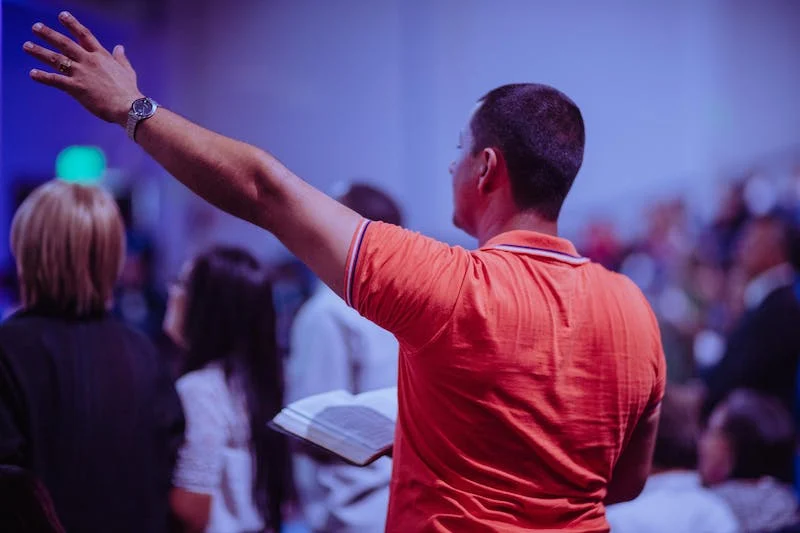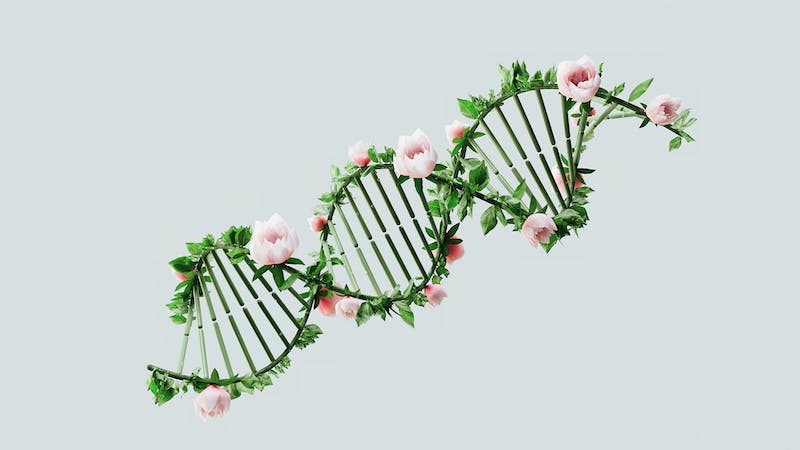
The story of Noah and the great flood is one of the most well-known and talked about events in the Bible. But aside from being a dramatic tale of destruction and redemption, it also holds significant prophetic meaning for the end times. In fact, Jesus himself spoke about the days of Noah and how they would be reflected in the time before the coming of the Son of Man. With the state of the world today, many are asking the question: Are we living in the days that are like the days of Noah as described in the Bible? Let’s take a closer look at what this means and how it relates to our current times.
Matthew 24:37-39
“But as the days of Noah were, so also will the coming of the Son of Man be. For as in the days before the flood, they were eating and drinking, marrying and giving in marriage, until the day that Noah entered the ark, and did not know until the flood came and took them all away, so also will the coming of the Son of Man be.
Understanding the Days of Noah in the Bible

If you’ve ever enjoyed reading the rich stories contained within the Book of Genesis, you might be familiar with the story of Noah. This intriguing story paints a picture of an time overwhelmed by widespread wickedness and corruption. The unchecked immorality of humanity during this time had soared to such alarming heights that divine intervention was deemed necessary.
In this troubling landscape, the figure of Noah emerges as a beacon of righteousness. God, deeply aggrieved by the state of the world but finding favor in Noah’s blameless conduct and generations, decides on a course of action to purge the earth. The plan? A cataclysmic flood of biblical proportions, destined to wash away the rampant wickedness that had poisoned creation.
The severity of the divine judgment to essentially ‘reset’ creation underlines the depth of the corruption during Noah’s days. Despite the surrounding darkness, Noah, through his righteousness, became a symbol of hope and obedience. His story serves as a reminder that even in times of widespread decay, individuals can still shine as examples of moral integrity and unwavering faith.
As we explore the parallels between our contemporary society and the days of Noah, it’s essential to keep this context in mind. Understanding the conditions that characterized Noah’s era helps us better analyze the moral and spiritual dimensions of our own time. It also reinforces the necessity of righteous and blameless individuals who can stand firm amidst the storm of societal corruption.
Analyzing our Current Times – Moral Landscape and Spiritual Apathy

When we compare the days of Noah with the present day, some startling similarities surface. The state of our world today is often marked by a wavering moral compass, with values that seem flexible and, in many cases, skewed. Behaviors and attitudes that suggest a disregard for life, rampant greed, pervasive selfishness, and uncurbed dishonesty are frequently seen. This reminds one of the unchecked wickedness that was rampant during the days of Noah.
In addition to this moral ambiguity, our contemporary society also exhibits a degree of spiritual indifference that closely echoes the spiritual atmosphere of Noah’s time. There is an increasing trend towards either indifference or overt hostility when it comes to matters of faith and God. Such an environment resembles the spiritual apathy that characterized the days of Noah.
Altered DNA – the Nephilim and today’s equivalent – mRNA vaccines?

In the biblical account of Noah’s time, Genesis presents the existence of the Nephilim. Many interpret these beings as products of DNA alteration.
Genesis 6:1-12 “Now it came to pass, when men began to multiply on the face of the earth, and daughters were born to them, that the sons of God saw the daughters of men, that they were beautiful; and they took wives for themselves of all whom they chose…There were giants on the earth in those days, and also afterward, when the sons of God came in to the daughters of men and they bore children to them. Those were the mighty men who were of old, men of renown. Then the Lord saw that the wickedness of man was great in the earth, and that every intent of the thoughts of his heart was only evil continually. And the Lord was sorry that he had made man on the earth, and He was grieved in His heart…Noah was a just man, perfect in his generations. Noah walked with God.
This idea of being “perfect in his generations” is interpreted by many as meaning that Noah and his family had not had their DNA polluted by those who had fathered the Nephilim with the “daughters of men”.
We are commanded in many places not to alter DNA, in general, and our DNA specifically. We are also told that our body is the temple of God and that we must treat it as such. We are exhorted to not take the mark of the beast – could this mark be related to DNA alteration? We are told about the importance of obeying God in every way, including his forbidding of DNA alteration. And we are warned of the deceptions that will be preset in the end times.
Your body is the temple of God
Your body is a temple – 1 Corinthians 6:19-20
A steward must be found trustworthy – 1 Corinthians 4:2
Anyone who destroys God’s temple will be destroyed – 1 Corinthians 3:17
Genetic alteration
The life is in the blood (DNA) – Leviticus 17:11
The sons of God took the daughters of man as their wives and had children with them (genetic alteration, altering the DNA) – Genesis 6:1-7
Noah was perfect in his generations (his DNA had not been adulterated) – Genesis 6:9
End times, the coming of the Son of man will be like the days of Noah – Mathew 24:37
Do not mix plants, fibers, animals (genetic alteration, altering the DNA) – Leviticus 19:19
Mark of the beast
The mark of the beast on their right hand and foreheads – Revelation 14:9
God will judge you if you take the mark of the beast – Revelation 14:9-10
Painful sores will come upon the people who took the mark of the beast – Revelation 16:2
But the chosen will have the mark of the Father on their foreheads – Revelation 14:1
Will not be able to buy or sell without the mark of the beast – Revelation 13:17
Obey God
Better to take refuge in the Lord than to trust in men – Psalms 118:8
We must obey God rather than man – Acts 5:29
Deception in the end times
There is a way that seems right to a man, but its end is the way to death – Proverbs 14:12
Do not let yourself be deceived with fine sounding arguments – Colossians 2:4
Do not be conformed to this world – Romans 12:2
Come out of her my people lest you take part in her sins, lest you share in her plagues – Revelation 18:4
Turning the lens to our current time, a similar story seems to be unfolding with the development of genetic engineering and, notably, mRNA vaccines. These cutting-edge technological advancements have sparked conversations about the potential manipulation of human DNA. The scale of these innovations brings forth echoes of the Nephilim’s time, presenting what some believe to be modern equivalents of altered DNA.
It’s crucial to clarify, however, that this parallel is more of an observation rather than an assertion of direct equivalence. However, the ethical and moral implications of genetic engineering do warrant careful thought and scrutiny. This viewpoint puts into perspective our responsibility to carefully investigate and understand any scientific advancements that we are being asked to participate in, especially if we feel these advancements are contrary to God’s word.
The Attitude of Disregard Towards Impending Judgment

Today, as it was in the days of Noah, a significant number of people seem to shrug off the idea of an impending judgment. Just as the people in Noah’s day brushed off his warnings about a coming divine flood, many people today view prophecies of future judgment with indifference or even cynicism.
This apathy toward the idea of catastrophic occurrences, whether divine judgement or the consequences of foolish policies, is alarming. Anyone with an internet connection and two functioning brain cells can plainly see that our times justify tremendous concern for the future of humanity. People need to awaken from their slumber, as it were, and start to realize that a “flood” is coming. Of course, we have been told that this catastrophe will not be an actual flood of water but still it is a metaphorical flood of disasters. Those that refuse to listen to prophecy and the warnings of God’s watchmen will most assuredly “drown” as did the nay-sayers of Noah’s day.
Even if you aren’t a religious person, consider this – persistent disregard for warnings can lead to destructive consequences. The story of Noah invites us all to reflect on our actions and attitudes, both individually and collectively. It encourages us to pay heed to the warnings of potential outcomes of our current behaviors and take appropriate corrective measures. As we each try to navigate these unique times, this message from the days of Noah serves as a timeless reminder of the importance of foresight, awareness, and accountability in our decisions.
How ever you choose to see it, the warning is equally important and ominous. So, take heed.
Are We, Therefore, Living in the Days of Noah?
It seems, to me and many others at least, that we are indeed living in the days of Noah. I recently posted a blog about the tribulation, seven seals, seven trumpets and seven bowl judgements.
It would be very hard to deny that we are living in the end times and anyone who chooses to ignore this reality can be likened to those in Noah’s day that refused to believe his warnings and even mocked him for his God-directed preparations. Are you one of these people? Are you headed down the same path of destruction? If you think that you might be, take some time to research the subject, get up to speed on current events and prophecy and see if you think they match. I assure you that it will be time well spent.